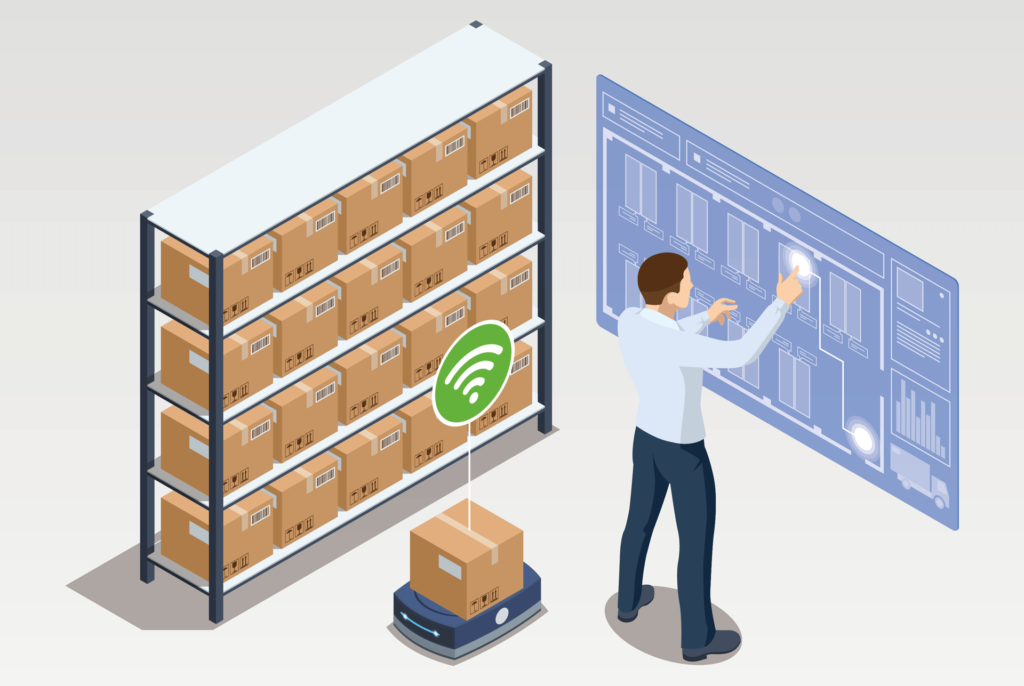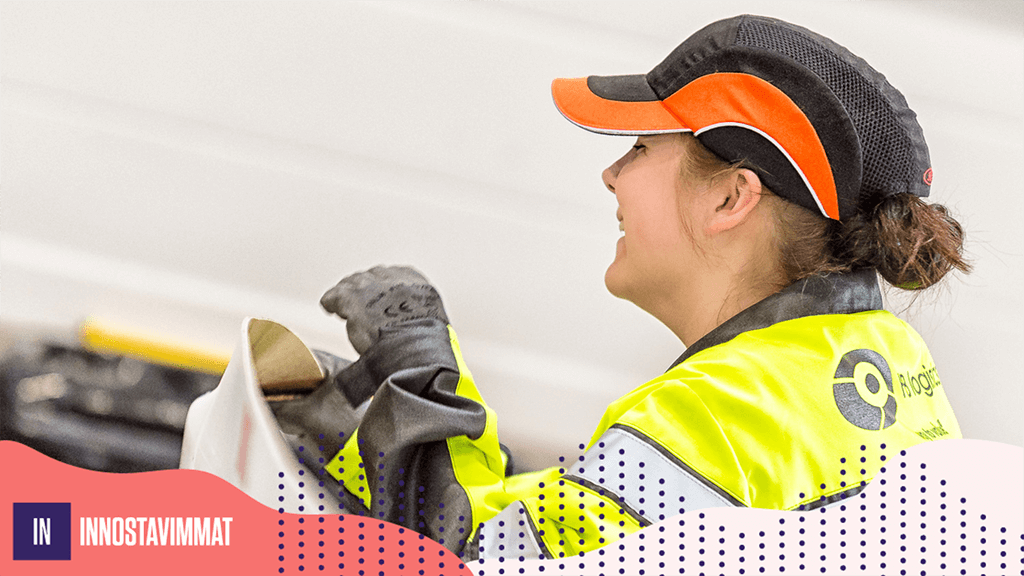Digitalization is now and in the future driving logistics towards smoother operations. But what exactly is coming? Innovations may include dark warehouses or 3D printing in logistics. People’s work is also changing. As the significance of physical work diminishes, the emphasis on guiding processes and understanding systems becomes even more critical.
Joni Sundelin, CEO of HUB logistics, and Anssi Tura, Development Director, predict that the digitalization of logistics will significantly impact service development. Currently, intelligent logistics systems and digital tools support and guide human work more precisely and efficiently. Robots, cobots assisting humans, or AI-based readers are part of this, streamlining operations and making them transparent.
Intelligent logistics is continuous development that propels the entire industry forward. For example, HUB logistics is involved in various development projects on a weekly and monthly basis, lifting the service to new levels. There is also daily work in internal projects and development initiatives for customers.
According to Anssi Tura, intelligent logistics involves putting a lot of effort into developing technological solutions and digitalization.
– We have, for example, just made an investment for an autonomously driving AGV truck. We are also constantly exploring new tools and equipment for picking and meeting their suppliers weekly.
Development through customer projects
The role of customers in development is significant. Willingness and investments in the use and benefits of digitalization are required.
– Willingness varies a lot. We offer efficiency to our customers, and thanks to intelligent logistics, the right things can be done at the right time and in a controlled manner. That’s why we specifically want customers who believe in digitalization serving their logistics. It’s not a goal in itself to solve everything with digitalization, but it’s essential to understand and harness its possibilities, says Anssi Tura.
We offer our customers efficiency and the ability to do the right things at the right time in a controlled manner, thanks to intelligent logistics.
Anssi Tura, Development Director
Joni Sundelin notes that financial investments in intelligent logistics are often substantial, especially in larger automation projects involving several million. Automation always brings demands and investments in backend systems, resulting in practical investments in the tens of thousands or hundreds of thousands due to integrations, according to Sundelin.
In Tura’s view, expertise is a crucial theme in investment.
– In today’s world, you have to know how to lead people and, on the other hand, guide millions of euros of automation. It’s a task for anyone. Not to mention the expertise needed in development. It requires significant investment.

The role of humans changes but doesn’t disappear
HUB has its own innovation window that gathers future themes along four axes: impact on logistics, both significant and less significant, and those achievable in the near and distant future.
– At the wilder end, there is, for example, a dark warehouse where even lights are not needed, and goods move in and out as needed. We have also previously explored how 3D printing could change logistics. However, it seems to be waiting for its time, muses Anssi Tura.
He says that the role of humans in logistics is changing but not disappearing.
– The control of processes and understanding systems will become even more emphasized, and, on the other hand, the significance of physical work will diminish. I have always considered it important for all employees to learn how systems work and how work could be done better. Then there will undoubtedly be work.”
Joni Sundelin states that although physical work is decreasing, no artificial intelligence will solve work. A human is needed to connect things to each other.
– More challenges come from understanding system and work management and customer experience. The need for skills becomes more comprehensive, concretely on the shop floor. And even a cobot cannot yet tell a person that they are not needed because it handles the matter better. I guess it will take a long time before everything is AI-controlled.
Even though physical work decreases, no artificial intelligence will replace work. We need humans to connect things together.
Joni Sundelin, CEO
Large markets drive innovation
Due to its size, Finland has not been at the forefront of logistics digitalization, as development requires enormous resources.
– Abroad, they are ahead because where volumes and business entities are large, progress can be faster. However, we have our own market position and specific challenges that we must be able to solve. Perhaps through these, we can find something that can be taken to the world, assesses Joni Sundelin.
Anssi Tura predicts that breakthroughs could come from Finnish software development because the country has been strong in that area.
In Finland, HUB logistics’ expertise and position in logistics digitalization are robust. Active development is one of the company’s values, and its mission is to change logistics with new service innovations. This requires continuous, active development work and the search for new operating models, better solutions, and more efficient processes.
– Our operating model is flexible, agile, and very customer-oriented, and we know how to solve problems. For example, in internal logistics, we are a leading player in the Finnish engineering industry, says Joni Sundelin.
Read also: Smart logistics is everyone’s advantage
Read about our services



